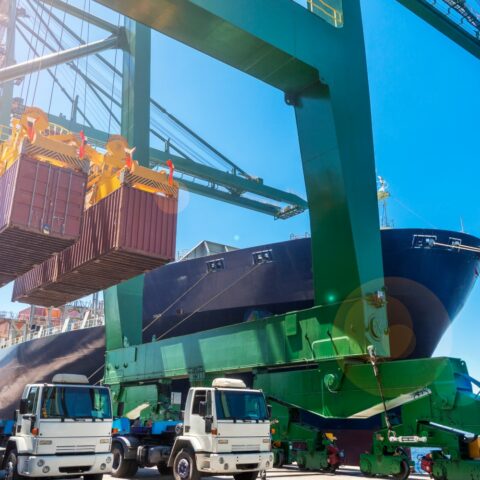The Challenge
Certificates of Origin are vital international trade records, certifying that goods in a particular export shipment are wholly obtained, produced, manufactured, or processed in a specific country. They also serve as a declaration by the exporter to satisfy customs trade requirements. Nearly every country requires one for customs clearance procedures, whether to determine the duty assessed on the goods or, in some cases, if traders can legally import the goods at all.
Traders in Jordan must obtain a paper-based certificate from the relevant chamber of commerce or industry for all exports to clear customs. But some chambers process them differently, creating a cumbersome process that lacks uniformity. Moreover, for regulators, verifying the authenticity of paper documents is time-consuming and costly.
What We Are Doing
The Alliance is working with Jordan’s government to establish a web-based system for facilitating electronic certificates of origin (eCOs) with possible integration with the country’s Single Window. This initiative aims to provide an electronic platform for issuing and verifying eCOs, saving time and money for all stakeholders, reducing documentation errors, and providing a more secure and transparent process.
The push toward eCOs will give micro, small, and medium enterprises (MSMEs) a better opportunity to participate in global trade, thanks to a reduction in clearance times and enhanced efficiency at customs points. It could also eliminate barriers women face in cross-border trade, such as transportation challenges or family commitments.
In addition, this project is strengthening the work of Jordan’s national consultations mechanism. Currently, three different committees handle trade facilitation issues. However, there is an urgent need to review the mandate of the existing committees and reinforce the coordination and consultation mechanisms to better serve the private sector needs through an improved public-private dialogue.
The Impacts
The adoption of eCOs will:
- cut customs clearance times and eliminate unnecessary administrative burdens, saving time and money and increasing predictability for traders
- reduce the time required to issue a single certificate
- minimise the risk of fraudulent certificates
- improve communications with national and international stakeholders, which mitigates the chance of misunderstandings and disputes
- save traders traveling costs required for a trip to obtain a single certificate
In addition, restructuring and strengthening consultations on issues of trade facilitation will:
- create an environment of open dialogue and coordination between all stakeholders, particularly the private and public sectors
- facilitate trade and transport activities through administrative and legal reforms
- raise awareness of the benefits of trade facilitation


 Jordan
Jordan

